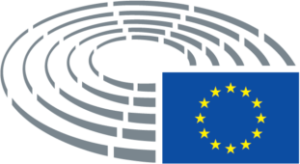In exactly three months’ time, the German parliamentary elections will be held and I know how many observers, in France in particular, are wondering what impact these elections will have both on the direction that a post-Merkel Germany will take in the coming years and on its European policy.
The first message I would like to convey is that whatever the outcome, whatever coalition takes the lead, the next German government will be resolutely pro-European.
The Greens, the Liberals of the FDP, the Social Democrats of the SPD, and of course my political family, the Christian Democratic Union (CDU) and the Christian Social Union (CSU): all of them are driven by a deep European conviction. The decline of the Alternative für Deutschland (AfD) in the polls shows that Germans are not fooled by the increasingly radical discourse and pseudo solutions proposed by the AfD.
It also shows that when political debate is lively and rich at the centre of the political spectrum, when voters see that mainstream parties offer a variety of solutions to their concerns while respecting the rules of the democratic game, democracy and institutions are strengthened, and the extremes are weakened.
The election manifesto that the CDU and the CSU adopted last Monday is a strong commitment to a united Europe, ambitious, capable of action and close to its citizens.
We stand for a strong Europe. To this end, we propose to step up the common fight against cancer through a Europe-wide research offensive.
We also propose to set up a real ‘European FBI’ to fight more effectively against terrorism, industrial espionage and tax evasion.
We want to strengthen the European Union’s capacity for action and its ability to make its voice heard in the world, for example by creating a common cyber-brigade and by transforming the Frontex, the European Border and Coast Guard Agency into a border and coastal protection agency with genuine sovereign missions.
We want to make Europe more democratic and closer to its citizens by enshrining the principle of the ‘Spitzenkandidat’, the leader of the European political parties in the European elections, and the strengthening of European democracy.
Finally, our candidate, Armin Laschet, who comes from the European city par excellence, Aachen, has, through his career, a strong European conviction.
I have full confidence in him to follow in the footsteps of Helmut Kohl and to carry forward an ambitious European vision on behalf of Germany.
My column in l’Opinion




